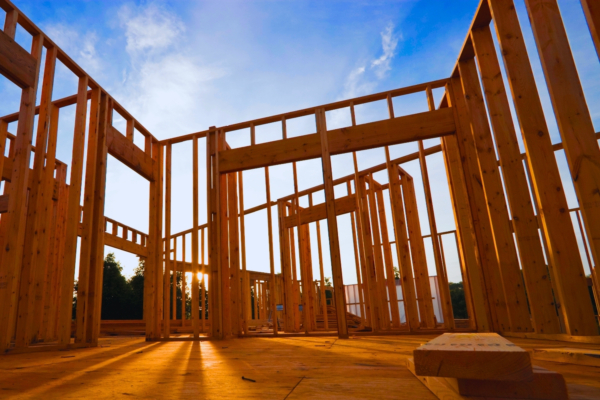
How to Buy a Duplex as a Rental Property

Let’s say you want to get into real estate investing, but you don’t know where to start. You know that you have the option of purchasing a single-family home, but also that additional units will ultimately generate more passive income for you. Buying a multi-family home, however, can also feel daunting to a beginner.
That’s why purchasing a duplex – a property with two units – is a smart beginner investment. Here are a few ways that duplex owners can make the most of their new real estate career.
Advantages of Buying a Duplex as a Rental Property
Whether you are an experienced real estate investor or a first-time buyer, there are several critical differences between duplexes and multi-family homes. Here are the things to keep in mind as you price out your options.
- Double rental income. The goal of buying a rental property is to generate rental income. Investing in a duplex means you increase your cash flow and earn double the revenue.
- Tax benefits. All real estate investments come with tax advantages. As a landlord, you get deductions on certain property expenses. If you want to maximize the tax benefits, look for states with the best tax regulations applicable to real estate investing.
- A good beginner investment. Duplexes are less risky and more profitable than single-family homes. This makes them great beginner investments for those who are just getting started in real estate investing.
- Less risk in the event of a vacancy. If you rent out a single home property, and the tenant decides to vacate, you could be in a tough position. But suppose a unit in a multi-family property is vacated. You can still count on the other units’ income to alleviate the vacancy loss in this scenario.
- More respectful tenants: If you decide to stay in one unit while renting out the other, you will likely attract more respectful tenants. Owner-occupied duplexes can be attractive to tenants who value an additional level of security from their landlords.
Financing Options
Even if you are convinced that a duplex is a smart choice for you, that still leaves the question of financing. Thankfully, there are a handful of options for financing the purchase of a duplex.
- Conventional loan. These are loans that you can get at most banks or credit unions. Most conventional loans require a 20% down payment as part of the closing process. They are typically fixed-rate loans and offer excellent interest rate stability.
- FHA Loans. The Federal Housing Administration (FHA) is a government agency that helps Americans become homeowners by allowing banks and other lenders to finance very low down payment loans. These loans require only a 3.5% down payment. To secure an FHA loan, you must live in the unit for at least a year.
- 203(k) loan. The 203(k) loan is part of the FHA loan program and allows you to incorporate the cost of repairs into the loan. That means if the property needs repairs, you can add those expenses to the loan and only have to make a down payment of 3.5% of that total amount.
- VA Loans. VA loans are made available to U.S. Veterans, Service Members, and select military spouses. They require $0 down. They are issued by private lenders and guaranteed by the U.S. Department of Veteran Affairs.
How to Buy a Duplex
Once you’ve put some thought into the investment and done some research, it’s time to start the process of actually buying the duplex. Here are some steps you should follow.
Perform a cost/savings analysis
Determine if you are ready to purchase a duplex as a rental property by performing a complete financial analysis. Calculate the amount of money you expect to receive in rental income and deduct the costs. Expenses to include are any required renovation work, maintenance and facility upkeep, repairs, and insurance.
The remaining amount is what goes towards your mortgage. Compare the remaining amount with what a mortgage would be for a single-family property to determine if purchasing a duplex will make you a homeowner at a lower cost.
Know what you want
Before you look for a property, have a clear idea of what you want. Some things to consider are how much you are willing and able to spend, what towns or neighborhoods you want to buy in, and what kind of condition you prefer. Just like single-family homes, you’ll also have your choice of move-in ready or fixer-upper properties.
Find a duplex for sale
Finding a duplex can be more complicated than buying a single-family home. There tend to be fewer duplexes on the market, and those that appear are often sold to investors quickly. The ones that remain on the market may be overpriced or in bad shape.
You could benefit from contacting a real estate agent for assistance, but understand that agents who work with investment properties often have other clients willing to buy them. For that reason, you should be sure to show that you’re eager and ready to purchase by showing proof of funds or the ability to get financing.
The best way to find a duplex is by networking with other investors. Most cities have investor groups with regular meetings. You can let other investors know what you’re looking for, and they’ll probably know someone willing to sell.
Finance the purchase
You can most likely get a conventional loan to purchase a duplex. The down payment can be demanding, as it typically ranges from 20-25%. Some lenders, however, allow the seller to finance a portion of the down payment.
Look for a lender that specializes in rental property loans. Keep in mind that if you choose not to live in one of the units, the mortgage will be considered a commercial loan. These loans usually have a balloon payment in 5-10 years, and there may be a prepayment penalty for the first few years.
Due diligence
Once you’ve made an offer, you have a period to inspect the property and make sure everything is in order. It is strongly recommended to hire a professional home inspector to look at the property and provide a detailed report of what needs to be fixed.
Once the inspection is complete, you can either accept or reject the property. If repairs are needed, you can negotiate to make the seller pay for some or all of the repairs.
Manage the property
Managing the property is much easier if you are living in one of the units. If you choose not to live in one of the units, be sure to visit the property regularly to make sure there aren’t any visible problems that haven’t been reported by the tenants. You must also be diligent in collecting rent to set the precedent that late rent payment will not be tolerated.
Conclusion
If you’re ready to take a step beyond single-family dwellings, or if you’re prepared to enter the real estate investing market with a splash, then duplexes might be right for you. Do your homework and get to know the local real estate investing community to ensure you have everything you need to make the right decision.
Thinking About Starting a Business?
Let our Commercial Lending team help you build your business plan.

